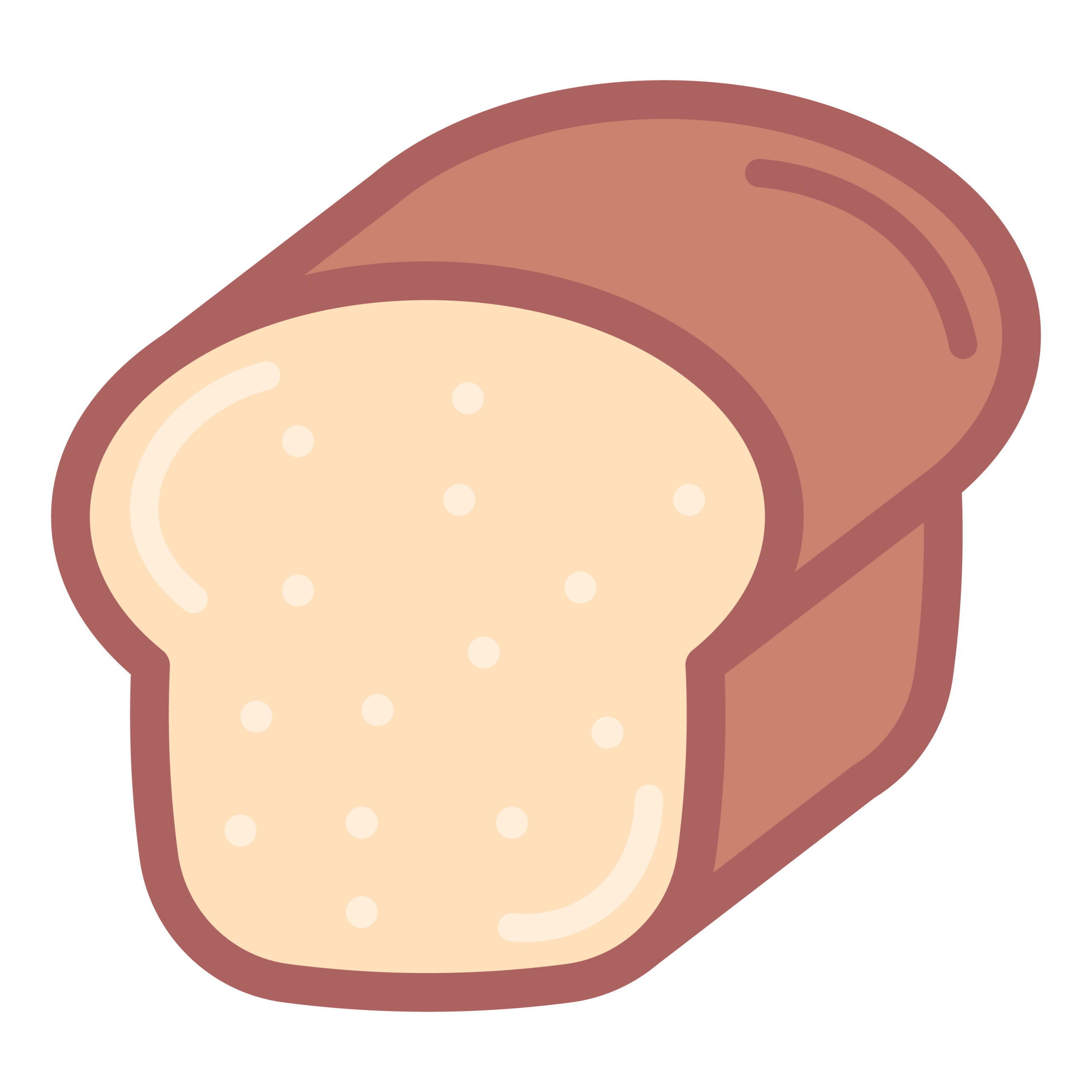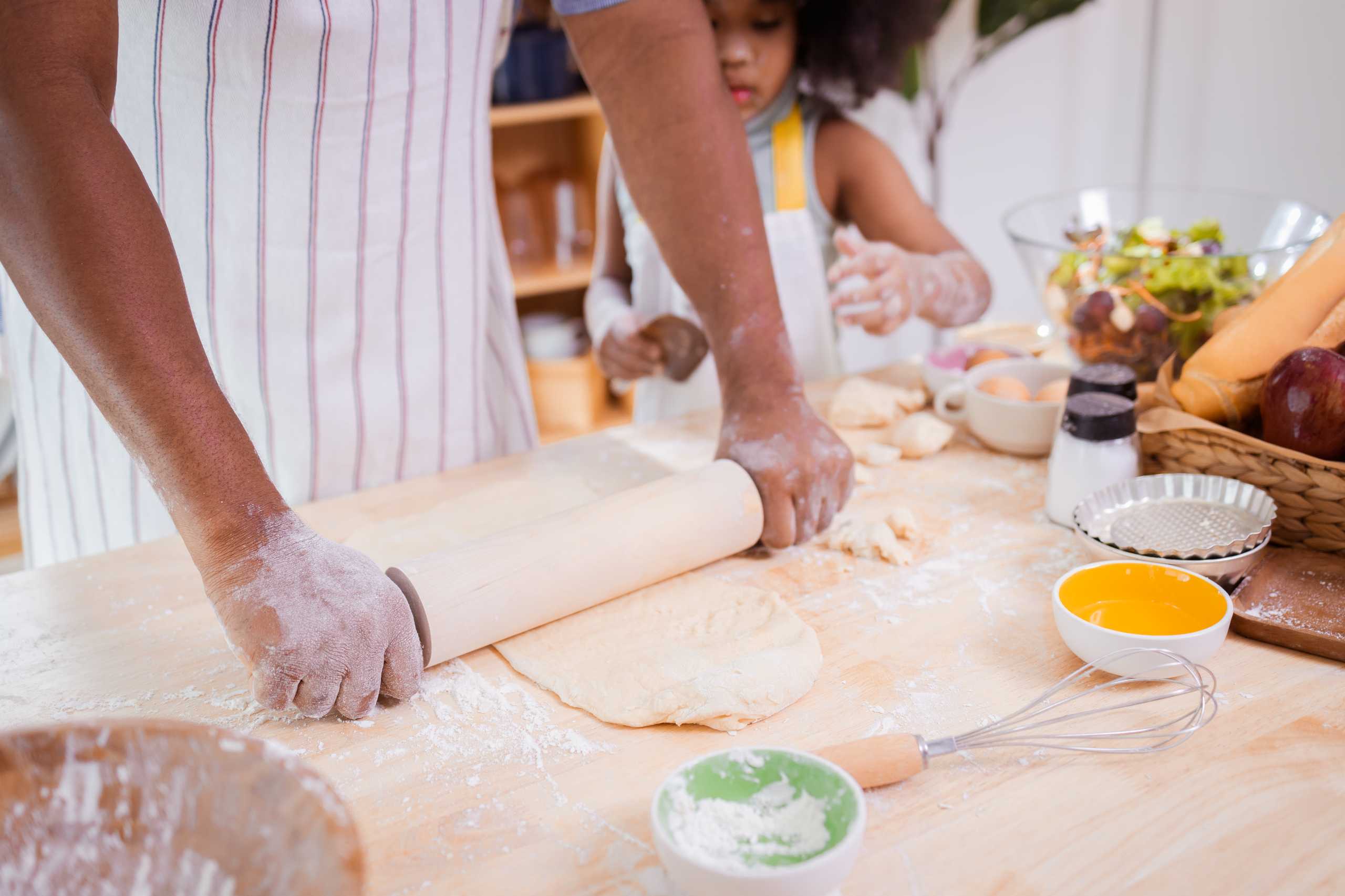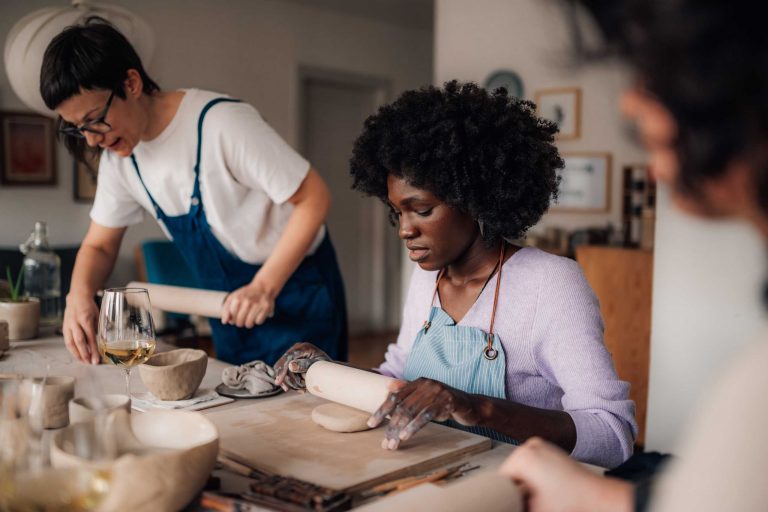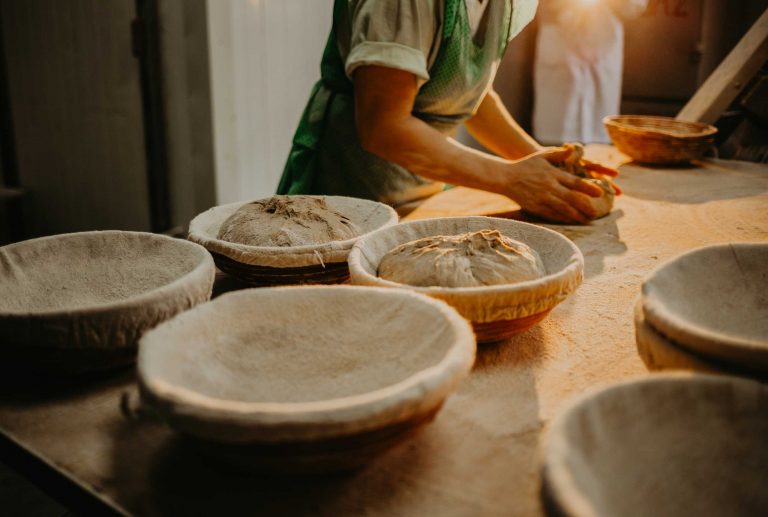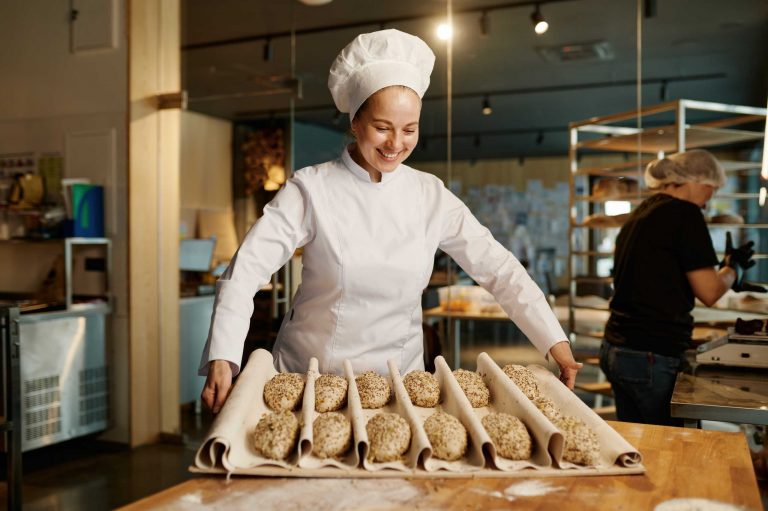Build your baking confidence with the right tools by your side.
While artisan baking is rooted in traditional methods and often doesn’t require fancy gadgets, having the right tools can make the experience smoother, more enjoyable, and more consistent. Whether you’re a beginner or looking to refine your setup, this guide outlines the tools that matter — and why they do.
Start Simple, Stay Reliable
You don’t need a professional bakery to start baking real bread. But a few thoughtfully chosen tools will elevate your results right away.
Here’s what we believe every home baker should have — no clutter, just purpose.
1. Mixing Bowls — Room to Work
Choose a set of large, sturdy bowls. Stainless steel or glass works best — they’re non-reactive, easy to clean, and durable.
Why it matters:
• You’ll be mixing high-hydration doughs that need space to stretch and breathe.
• Transparent bowls help you see fermentation activity clearly.
2. Digital Scale — Precision Counts
Forget measuring cups. A good digital scale ensures accurate flour, water, and salt ratios — essential for consistent dough structure.
Why it matters:
• Precision leads to repeatable results.
• You’ll learn to trust baker’s percentages, not guessing games.
3. Bench Scraper — A Baker’s Secret Weapon
Small but mighty, the bench scraper helps you divide, lift, and shape sticky dough with ease. It’s also perfect for cleaning flour off your work surface.
Why it matters:
• Saves time and frustration.
• Supports cleaner shaping without tearing delicate gluten structure.
4. Proofing Basket (Banneton) — Shape with Grace
Proofing baskets allow the dough to rest and rise in a supportive structure, helping it hold shape during the final rise.
Why it matters:
• Gives your loaves beautiful definition.
• Encourages even fermentation and airflow.
Bonus tip: Line it with a floured cloth for soft doughs, or use it bare for that signature spiral pattern.
5. Dutch Oven or Baking Cloche — Steam and Structure
A heavy-lidded Dutch oven mimics professional steam-injected ovens. It traps moisture during the first bake phase, creating the environment needed for an airy crumb and crackling crust.
Why it matters:
• Delivers that magical oven spring.
• Achieves crust color and texture that can’t be faked.
6. Lame or Sharp Blade — Make Your Mark
A lame (pronounced lahm) is a special tool for scoring the top of the dough. It lets the bread expand without tearing, and opens up room for artistic expression.
Why it matters:
• Controls the loaf’s final shape.
• Adds a signature touch — from bold cuts to intricate flourishes.
7. Thermometer — Know the Heat
An instant-read thermometer helps monitor water temperature and baked loaf doneness. It removes the guesswork, especially when managing fermentation.
Why it matters:
• Prevents dead starter from hot water or underbaked centers.
• Consistency becomes second nature.
Nice-to-Have Additions
If you’re ready to go further, consider:
- A bowl cover or shower cap to trap fermentation warmth
- A silicone baking mat for shaping enriched doughs
- A spray bottle to mist crusts before baking
- A cooling rack to allow steam to escape evenly post-bake
None of these are essential — but once you start using them, it’s hard to go back.
Baking With Intention
Artisan baking isn’t about collecting tools. It’s about understanding what you’re doing and why it works. The right tools support that process — they’re partners in creativity, patience, and skill-building.
You don’t need a fully stocked kitchen to start. But one tool at a time, one loaf at a time, you’ll build a practice that feels rooted, personal, and full of possibility.
